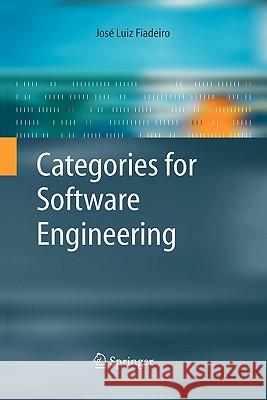Categories for Software Engineering » książka
Categories for Software Engineering
ISBN-13: 9783642058882 / Angielski / Miękka / 2010 / 250 str.
Why Another Book on Category Theory? In the past ten years, several books have been published on category t- ory either by computer scientists or having computer scientists as a target audience (e. g. 6, 12, 22, 89, 105], to which a precious collection of little gems 90] and the chapter cum book 91] should be added). Isn't the working computer scientist spoilt with choice? Although each of the above mentioned books presents an approach of its own, there is one aspect in common in their view of computer science: the analogy between arrows (morphisms) and (classes of) computations. This "type-theoretic" or "functional" approach corresponds to a view of c- puter science as a science of computation, i. e. a discipline concerned with the study of computational phenomena where the focus is on the nature and organisation of computations. However, there is another view of computer science where the focus is, instead, on the development of computer programs or systems. This is the approach that supports, for instance, software engineering. From this point of view, arrows do not capture computational phenomena, or abstractions thereof, but instead relationships between programs, or abstractions of programs, that arise in the development of computer systems, for instance, refinement of higher-level specifications into executable programs 100, 104], and superposition of new features over existing systems 72].











